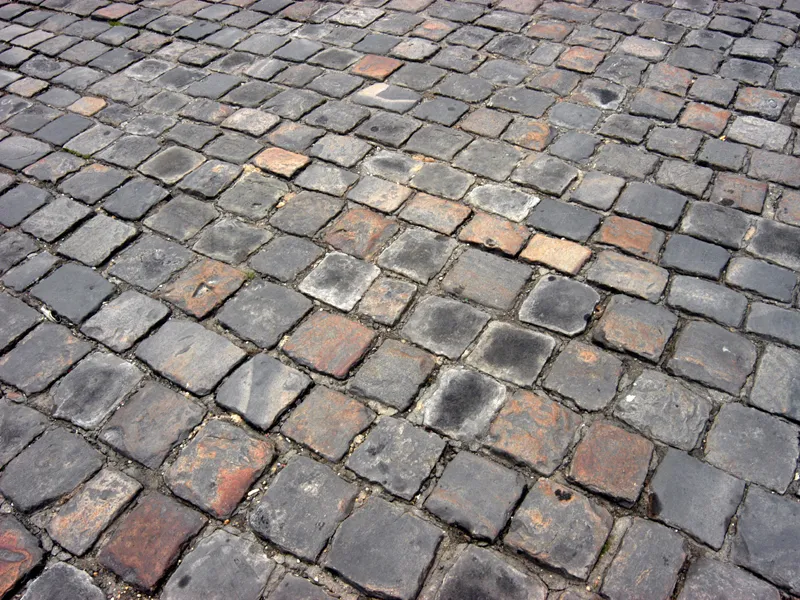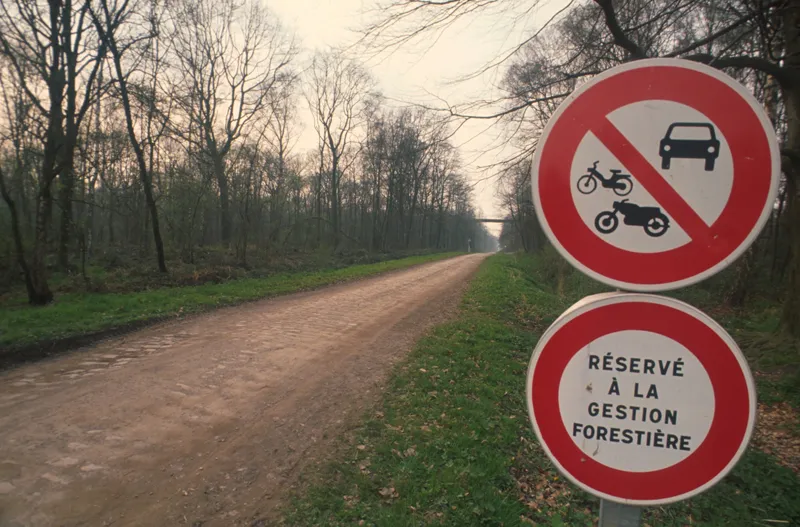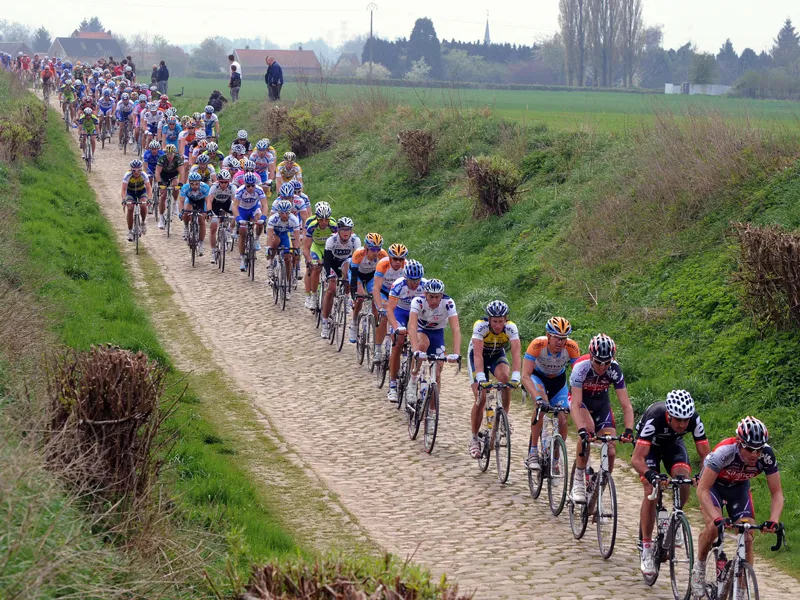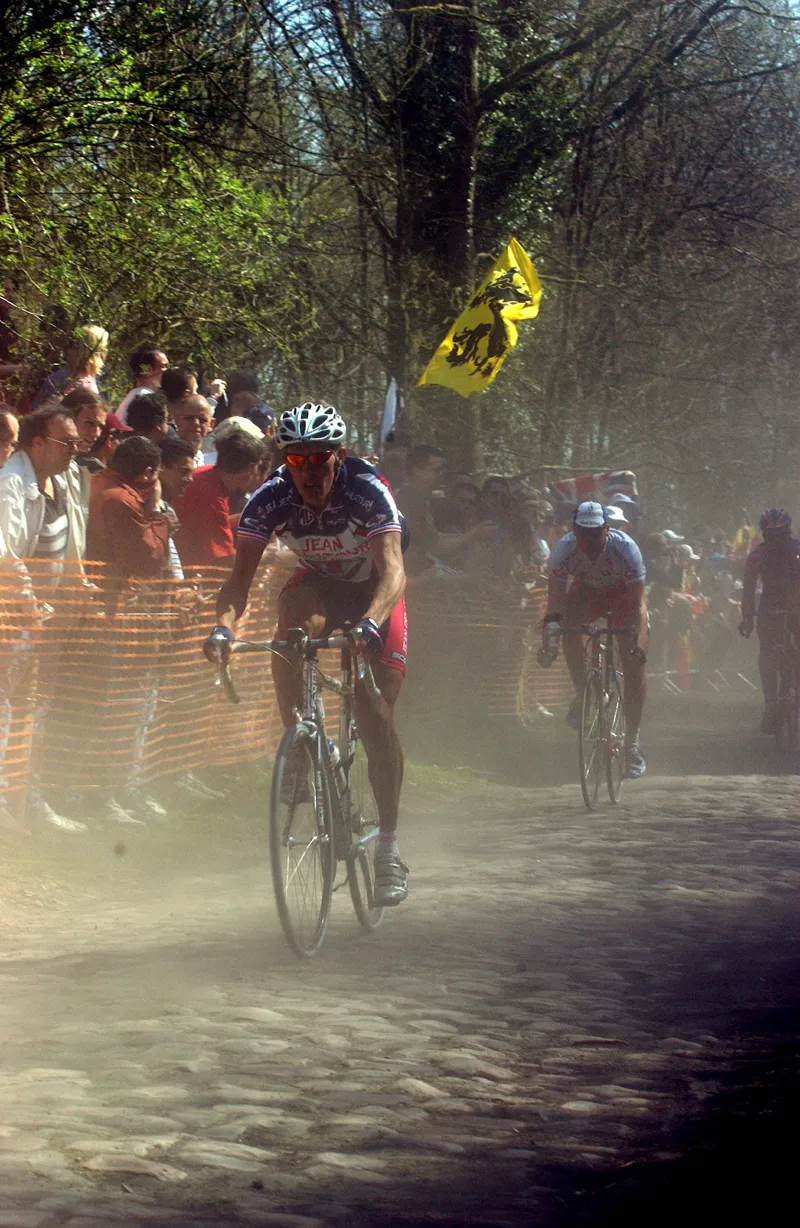The inaugural Paris-Roubaix Challenge on 9 April promises to give amateur cyclists a taste of what it takes to conquer the 'Queen of the Classics'. Participants in the 162km sportive will get to ride over 31.6km of the legendary pavé the day before the professionals race for one of the most prestigious titles in cycling. We spoke to organiser Laurent Boquillet, of Amaury Sports Organsation (ASO), to find out more.
"It's about connecting the everyday, sportive rider with a piece of the pro cycling dream," Boquillet told BikeRadar. "We have the unique opportunity to close the roads and offer people almost the same course [as Paris-Roubaix], so when they watch the race a few days later they can say, 'I was there, I was on those same roads'. Paris-Roubaix is one of those legendary events. It's a tough one, but it's a great way of doing a sportive."
The Paris-Roubaix Challenge, not to be mistaken for the Paris-Roubaix Randonnée which is held biennially in June, will start further north than the pro race's traditional departure point of Compiègne, instead commencing in the town of Saint Quentin. Despite running some 100km shorter than its counterpart 24 hours later, its route will include a concentration of the narrow, cobbled roads – or 'sectors', in Paris-Roubaix parlance – that make the professional event so formidable.
Logistics mean the sportive will miss the Arenberg forest. "We'll not go through the Arenberg because it's earlier in the race and since we'll come from Saint Quentin the easiest and fastest way was to start at cobblestone section 18," said Boquillet. "Arenberg is sector 21, but when we planned the route we weren't sure it would be in the pro race or not. In the future we may change the course to include the Arenberg, but for this year we will not go through it."

The sportive will skip around nine of the official race's cobbled sectors (which are traditionally counted in descending order), but will definitely include the famed sectors of Chemin des Prières, Mons-en-Pévèle and Carrefour de l’Arbre, not to mention a finish in the hallowed Roubaix velodrome. The 31.6km of bone- and bike-shaking stones on the parcours is certain to provide a stern challenge for all those taking part.
Indeed, the Paris-Roubaix Challenge is not one for the faint hearted. Unlike other sportives there's only one course option on offer; riders will have to complete the entire distance. This is due mostly to the fact that the first 147km of the route will be run on closed roads. Timing chips will ensure competitors are timed from the start to the finish of the closed section of the route. In deference to local businesses, the final 15km will be neutralised as it re-enters open roads. A small army of 200 Gendarmes and 500 race marshals will ensure the security of the course throughout the day.
"For the police it was easier to do it over a weekend," said Boquillet. "It's not easy to close roads for two days in a row, that's why we stop timing riders at the [cobbled sector] Carrefour de l’Arbre. From there, riders will have to go to the velodrome to collect their finish time, but the roads will be open because we have to show consideration for the shops that would otherwise face two days in a row without road access."
Entries for the inaugural Challenge will be capped at 3,000, with around 1,800 of those positions already filled. Registration must be completed prior to the event and costs €75. Boquillet explained that while the sportive may be more expensive than other European events, it's not a case of comparing apples to apples.

"It's interesting because there are different interpretations of sportives and different expectations depending on the culture of a country," he said. "We're offering closed roads, which costs a lot of money. When you also offer souvenirs and full aid stations like we do that adds to the cost of running the event. Compared to some events in Belgium, for example, where you don't get extras like a T-shirt and ride on open roads, some people say, 'you're expensive'. But I don't think we're expensive when you look at what we offer."
The course will include three aid stations, with a fourth situated in the velodrome. Mavic will provide technical support, with a trio of mechanical stations dotted along the route. The Paris-Roubaix Challenge follows in the tradition of ASO's Etape du Tour, which gives amateur riders the chance to race over one of the Tour de France's toughest Alpine stages several days before the pros come through. It's become something of a Mecca for sportive riders and it's hoped that in time the Paris-Roubaix Challenge will assume similar status.
The Etape and Paris-Roubaix Challenge will help form a trinity of ASO-affiilated sportives that will take place in 2011, with the organisation also partnering with a Belgian company to run an event the day before the Ardennes Classic Liege-Bastogne-Liege. The pair of new sportives will hopefully lead to a boost in spectators for the races.
Boquillet himself will take part in the Paris-Roubaix Challenge. While there is a pragmatic component to his participation, his passion for cycling is clearly evident when speaking to him – something that augers well both for the event and for those who decide to take up the challenge. "I'm working closely with another person who'll handle logistics on the day, as well as several others," he said. "I want to experience the race so that I can get a feeling of what we need to improve in the years to come."
For more information about the Paris-Roubaix Challenge or to register, visit the event website.





